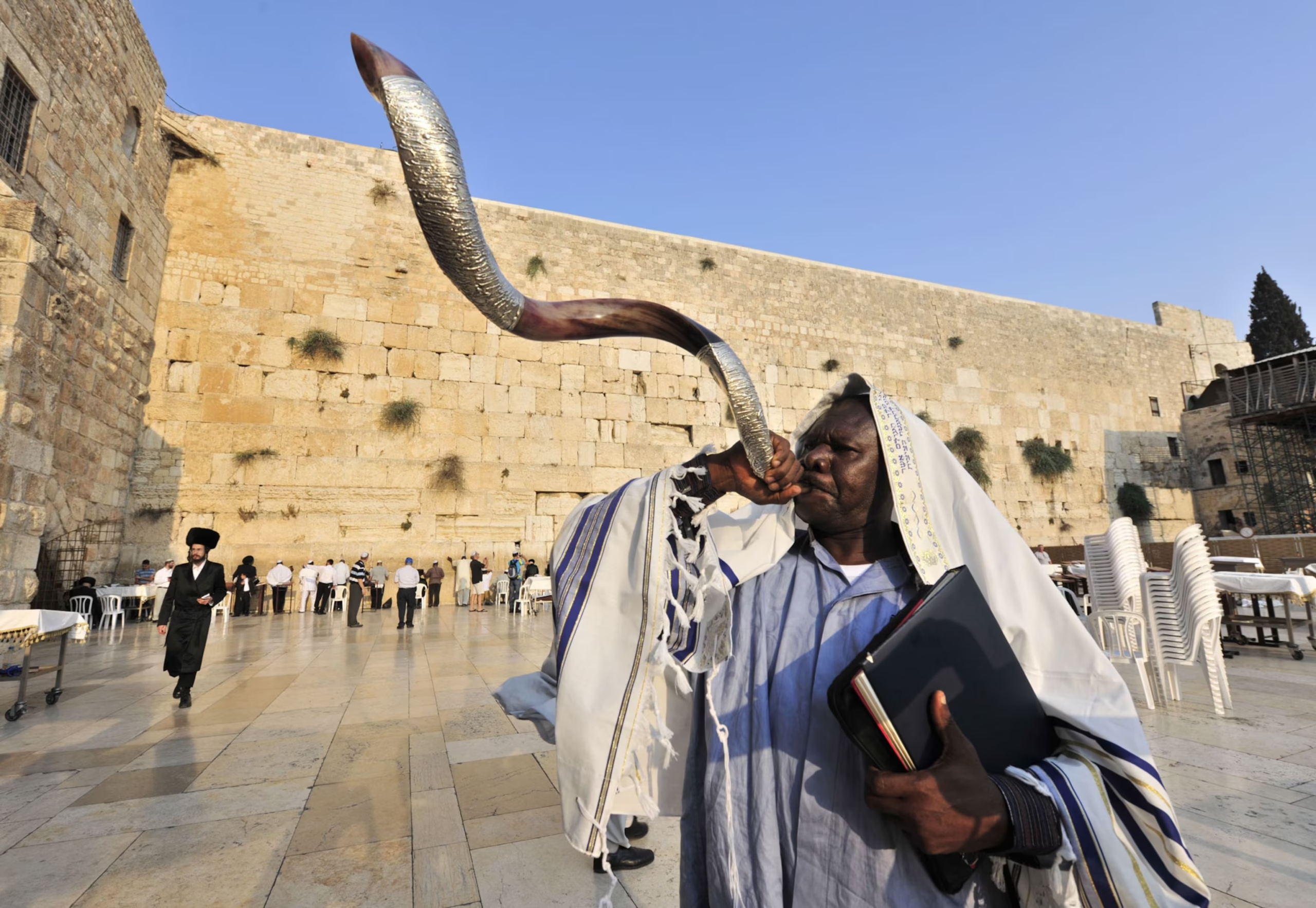Every September, millions of people worldwide observe the Jewish New Year of Rosh Hashanah. However, Aish.com, a site dedicated to amplifying Jewish culture reminds everyone, this is not a “turn-up” and pop bottles to your favorite Drake song at the club new years holiday.
The first day of the Jewish New Year celebrations, also known as Rosh Hashanah, is a two-day holiday starting on the evening of September 22, 2025, and begins Ten Days of Repentance (Aseret Yemei Teshuvah), also known as the Days of Awe (Yamim Noraim), that culminates with the major fast day of Yom Kippur, the Day of Atonement. (via: myjewishlearning.com)
Rosh Hashanah celebrations reveal something fascinating about human adaptability. The same ancient holiday transforms dramatically across continents, yet maintains its core spiritual purpose.
When Traditions Travel and Transform
In Djerba, Tunisia, children comb through olive orchards before the holiday. They carry olives through streets, calling “zeitun yehi ratzon,” announcing they have olives for traditional blessings about multiplying merits like olive saplings.
This isn’t found in any ancient text. It’s pure cultural creativity.
Moroccan Jews eat seven cooked vegetables on Rosh Hashanah eve. The number seven recalls that Rosh Hashanah ushers in the seventh month on the Jewish calendar, honoring the Midrashic tradition that “all sevenths are beloved.”
Ethiopian Jews call the holiday “Berhan Saraqa” or “The Light of Abraham Is Rising.” Instead of the traditional shofar, they sound cymbals, guided by passages in Psalms.
Each community found ways to honor ancient meanings while embracing local expressions.
The Unifying Thread
Despite these variations, certain elements remain constant. Community gathering happens everywhere. Families come together for festive meals featuring symbolic foods.

Reflection takes center stage through prayer services and personal contemplation. The holiday marks a time for examining the past year and setting intentions for the year ahead.
Stepping into the new year with intentionality manifests through symbolic foods like apples dipped in honey, round challah bread, and region-specific additions that carry wishes for sweetness and prosperity.
Respectful Participation for Everyone
Non-Jewish individuals can honor this holiday through simple, meaningful gestures. Wishing Jewish friends “Happy Rosh Hashanah” or “Happy New Year” shows cultural awareness and respect. Rosh Hashanah is also a significant holiday, where observers are asked to limit their work obligations. Non-observers can avoid scheduling important meetings or deadlines during this time period in respect and consideration.
Some synagogues welcome non-Jewish visitors to High Holiday services, though checking specific policies beforehand ensures appropriate participation.
Exploring traditional recipes and supporting local, Jewish-owned businesses, like Baltimore-based Jewish Jerky Brand, or Drop Squad Kitchen, a Black-owned, plant-based, Kosher-certified restaurant in Wilmington, Delaware is also a good way to support local Jewish communities during the holiday season, while also exploring new avenues for cultural and culinary appreciation.
The key lies in approaching participation with genuine interest in learning rather than casual observation.
Universal Themes That Transcend Boundaries
Rosh Hashanah offers something every culture understands: the power of fresh starts. The holiday’s emphasis on reflection, renewal, and hope resonates far beyond Jewish communities.
These themes appear in New Year celebrations worldwide, from January resolutions to lunar new year traditions across Asia.
The holiday reminds us that beginning again requires both community support and personal commitment. It’s about stepping forward together while taking individual responsibility for growth.
Whether through Tunisian olive blessings, Moroccan vegetable traditions, or Ethiopian cymbal sounds, the message remains consistent: every ending creates space for a sweeter beginning.

